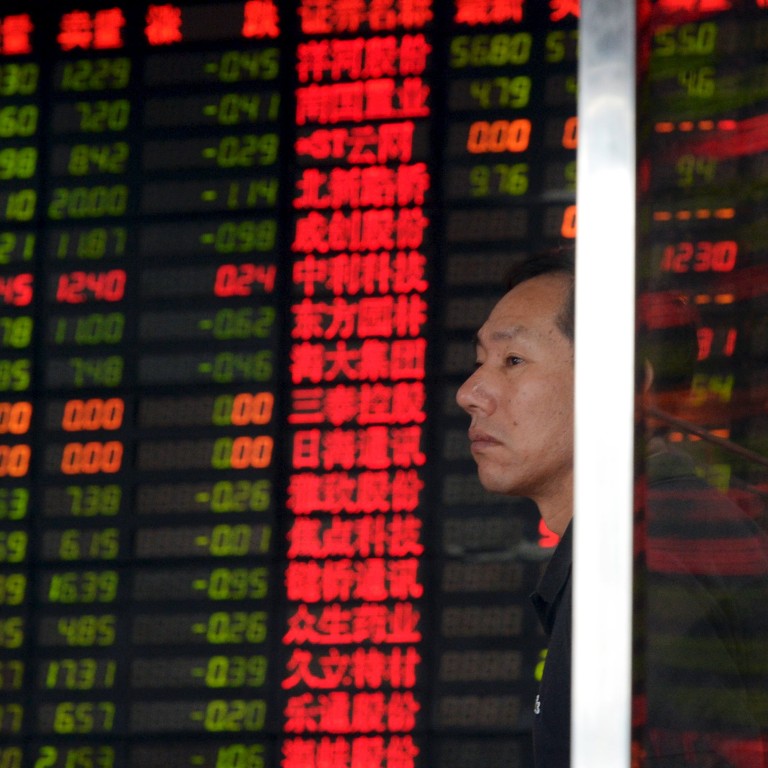
New | Beijing's efforts to prop up stock market fall flat leaving investors 'confused'
Beijing's chaotic moves to control the country's stock markets have left investors confused and fail to address broader economic concerns
Beijing's relentless efforts to prop up the stock market have hardly moved the benchmark gauges as the problem lies in the economy rather than the markets.
"International investors are pricing in the risks embedded in China's economy or deterioration, or a possible financial crisis. But the sell-off has been overdone," said UBS economist Donna Kwok.
"The key is not how the stock market reacts, but how the real economy goes. We do not think the government should save the market with an expansive cost," said Kwok, but added that Beijing's policy support to prop up the economy had been relatively successful so far.
"If not for this support, infrastructure investment would not have broken away from the continued slide in property and industrial investment - and overall economic growth would not be holding up at current levels."
Beijing has had a busy schedule, rolling out fresh policies, orders and guidances on almost a daily basis in past weeks - from fresh monetary easing and allowing pension funds to trade more stocks to calling for more dividend payouts by state firms and slapping penalties on trading platforms. For some, it's all a bit too much, with the buzz of activity getting increasingly chaotic.
"The government is sending confusing signals in a flaccid economy. Capital is leaving the country. The stock market is only reflecting that sentiment," said Kevin Lai, an economist at Daiwa Capital Markets.
According to Francis Cheung, Hong Kong-China strategist at CLSA, the biggest market overhang is that it is not working.
"The market has stopped functioning because it's stopped raising capital," Cheung said, referring to the freeze on initial public offerings (IPOs) since July.
"I think [the Shanghai Composite] can go back to 2,700 or so (from the current 3,160). As soon as the authorities figure out it's a losing battle, they will stop supporting the market."
But there are still some who see a pattern in what others consider madness. A slew of advisories issued on Monday urging companies to buy back more shares and pay out more dividends was a right step in addressing one of the fundamental issues in the stock market, said Li Daxiao, chief economist at Shenzhen-based Yingda Securities.
The government is sending confusing signals in a flaccid economy. Capital is leaving the country. The stock market is only reflecting that sentiment
"Why has the A-share market been a gambling ground? Because investors are not rewarded for holding stocks. When companies don't share profits with investors, the only way to profit is buy low and sell high. This is what brought us to the ludicrously high valuation for some stocks, especially the ChiNext." He said.
ChiNext, the tech-heavy Nasdaq-style board of the Shenzhen Stock Exchange, zoomed from around 1,500 points at the end of last year to its peak at 4,000 in June, before the market crashed. It has lost half its value since, trading at 1,855 on Wednesday.
Being an advisory, Monday's circular could have been more muted than other direct measures seen of late, Li said, but the Ministry of Finance's signature along with three other departments makes it special. "With the endorsement of the MOF, it carries much more weight," he said.
Erwin Sanft, China strategist at Macquarie, said mainland companies would take time to adopt share buybacks but higher dividend payouts were a structural shift. "The MOF has put a lot of pressure on state firms to make greater contributions, so they would have to distribute more cash to both the government - the major shareholder - and minority investors."
But according to Sanft, the government has at least crossed off one item from its to-do list - deleveraging the equity market. Outstand margin financing, or money borrowed to buy stocks, was just over 1 trillion yuan (HK$1.21 trillion) as of Wednesday, compared with the peak of 2.3 trillion yuan in May.
"We consider 1 trillion yuan a sustainable level. Whatever the government is doing now is more of a mopping-up operation," said Sanft. "The invisible hand will go back to being invisible. We'll go back to the normal situation where market forces play the primary role and the government will be in the background again."
Another keenly watched move would be the resumption of IPOs. Halting IPOs was an emergency brake. The securities regulator has indicated the long awaited registration-based IPO system would be ready by the end of the year.
"There's some delay but I don't think it would be that long because the system is ready and should launch when the timing is right. This will be an important signal for the regulators to flag the world that the intervention is over," said Sanft.


